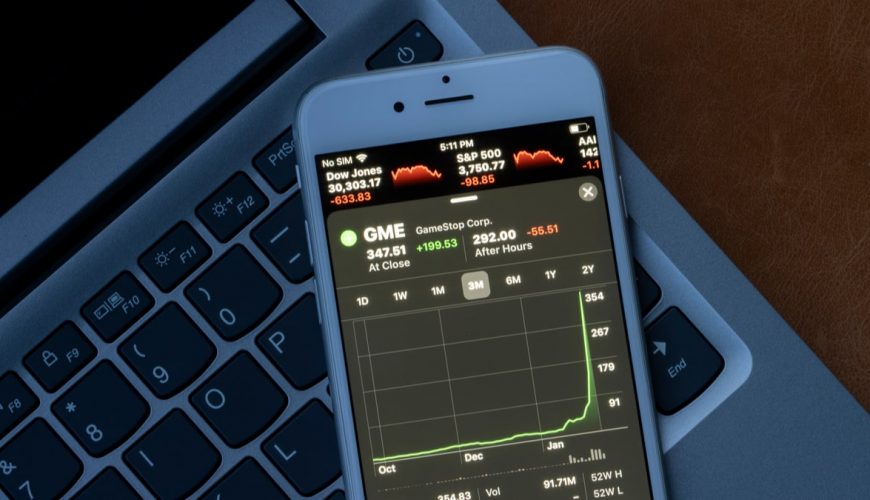Just like most professions, Stock trading has its basic terminologies used when trading.
Knowing these stocks trading terms as a beginner or intermediate trader, would increase your knowledge of the stock exchange market and help you make better decisions.
You will find these terms useful when investing in stocks, mutual funds, or bonds.
1. Agent
An agent or brokerage is an individual or company that acts on behalf of a client to buy or sell shares.
The agent helps you buy shares in your proffered company.
2. Ask/Offer
The Offer is the selling price which the owner of the shares wishes to sell it.
It is the lowest price you can get a unit of the stock.
3. Annual Report
An annual report is published by a company detailing information about the firm to the public and its shareholders.
It is an important document to review before investing in the stocks of a company. It helps you determine the financial situation and solvency of the business.
4. Averaging Down
This is a situation where the price of a company’s stock goes down.
People buy into companies with lowering stock prices if they believe the price would rebound later.

5. Bear Market
This is used to describe a stock market in a downward trend or whose stock prices are consistently falling.
It is the opposite of the bull market.
6. Beta
This is a measurement of the relationship between the price of a particular stock and the movement of the whole market.
If a stock has a beta of 1.0, that means that at a point, the price of the stock moves 1.0 points and vice versa.
7. Blue Chip Stock
These are stocks of large and industry-leading companies.
They are well established with sound financial management and a solid record of dividend payment over the years.
This expression is derived from blue gambling chips, which are the highest denomination in a casino.
8. Bull Market
This is the opposite of the bear market. It is used to describe the situation when the stock market is in a consistent upward trend or stock prices consistently rising.
9. Broker
A broker is the same person as an agent. It is an individual or firm who helps you buy or sell shares and other securities for a fee.
The broker acts as an adviser for the sales and purchase of stocks.
10. Bid
A bid is the amount of money a buyer is willing to pay for a specific stock. It is the opposite of an offer.
Recommended: List of Active Members (Stock traders with The NSE)
11. Bonds
It is promissory notes issued by the government and well-established companies to its buyers.
Bonds are considered a safe investment that brings in substantial returns. Read more on bond here.
12. Business Day
These are days when the stock market is open – which is usually the weekdays; Monday to Friday, excluding public holidays.
13. Close
This is used to describe a period of inactivity in the stock exchange market, like when the stock exchange market closes for the day. The Nigerian Stock Exchange(NSE) closes at 5 pm daily.
14. Commodities
These are the products traded on the stock exchange market.
The authorized commodities may include agricultural products and natural resources like oil stocks, gold stocks, and others.
15. Day Trading
This involves the practice of buying and selling specific stocks on the same day.
Traders who engage in day trading are called “day traders” or “active traders.”
16. Debentures
This is a debt instrument issued by companies. It is an unsecured form of investment issued based on the reputation and creditworthiness of the issuer.
17. Dividend
This is the portion of a companies’ earnings paid out to its shareholders.
When you buy a company’s shares, you buy into a company and become entitled to a quarterly or annual dividend.
18. Exchange
The exchange is the platform where stocks and other investments are bought and sold. In Nigeria, we have the Nigeria Stock exchange market (NSE).
The United States has the New York Stock Exchange (NYSE).
19. Execution
The term is used to describe the completion of an order to buy or sell a stock.
For instance, if you put up 200 shares for sale and it is sold, the order will be said to have been executed.
20. Index
This is a benchmark that is used as a reference for traders and portfolio managers.
It indicates the level of change in the stock market and the economy.
21. Initial Public Offering (IPO)
The IPO is the first offering of a company’s stocks to the general public.
It is mostly issued by startups and smaller companies seeking for funds for expansion, and also large companies been listed on the exchange.
22. Internet Trading
Internet trading or etrade is a trading system that allows traders to buy or sell stocks from any part of the world on the internet.
Most brokers today have platforms that allow the execution of trade using the internet. The etrade feature is an essential requirement when choosing a stockbroker.
23. Limit Order
This is the minimum number of stock or stock price a seller is willing to accept, and the maximum number of shares or price a buyer is willing to pay.
Recommended: What to Consider When Choosing a Broker
24. Listed Stocks
These are shares that are traded on the stock exchange.
The issuers pay for their stocks to be listed on the stock exchange and have to abide by its rules and regulations.
25. Margin
A margin account allows a person to take loans from a stockbroker to make a specific investment.
Some brokers have this feature; however, trading on margin is dangerous because you can lose significant amounts if you take the wrong step.
26. Market Capitalization
This is the total value of a company’s outstanding shares combined.
It is determined by multiplying all of a company’s outstanding shares by the market price of a single stock.
It is an indication of a company’s wealth.
27. Mutual Fund
This is a pool of investments belonging to various investors being managed by experts to improve their savings.
A mutual fund is a portfolio consisting of stocks, bond, treasury bills, and other securities. You can read more on mutual funds here.
28. Open
This is the period when the money exchange market is open for trading.
Most markets around the world, including the Nigerian stock exchange (NSE), open in the morning and closes in the evening.
29. Order
An order is a bid to buy or sell specific stocks. You can place an order to buy or sell 5,000 units of a particular stock as the case may be.
30. Pre-opening Session
This is a period before the formal opening of the market for the day.
It can be a few minutes to an hour, where orders retry, modification, and cancelation can be done.
31. Price Earnings (P/E) Ratio
This is a valuation of the last traded share price of a specific company to its reported 12 months earnings per share.
For instance, if a company’s current share price is N60, and its earnings per share over 12 months is N3, then the P/E ratio would be 20 (60/3).
The P.E ratio is an important tool indices to look out for before investing in stocks of a company.
32. Put Option
An option gives the investor the right to purchase a specific stock at a stated price within a period.
When a trader buys a put option, it is mostly because they believe the value of the share would fall below the stated share price.
33. Portfolio
This describes the collection of investments owned by a specific investor.
Recommended: How You Can Start Trading Stocks With Little Capital
The portfolio can range from shares of various companies to other types of securities like bonds, mutual funds, treasury bills, etc..
34. Quote
This is the information about the stocks latest trading price.
35. Risk
This is the probable chance that investment would yield actual returns.
The risk in an investment is measured by calculating the standard deviation of its past returns.
36. Sector
A sector is used to describe a group of shares from the same industries.
For instance, share from pharmaceutical companies is categorized as the medical sector.
Some traders prefer to trade in specific sectors because they are more experienced in such industries.

37. Securities
This is a certificate that indicates ownership of various investment products like stocks, bonds, mutual funds, treasury bills, option, etc.
Securities are transferable when the investment is sold.
38. Share Market
A share market is any platform where shares are sold and bought.
The money market is a classic example of a share market.
39. Spread
This is the difference between the buyer’s bid and the seller’s asking price for specific shares.
For instance, if a seller is putting up stock for sale at N80, and a buyer bids N60, the N20 difference is the spread.
40. Stock Symbol
This is an alphabetic symbol used to represent a publicly traded company on the stock exchange.
The stock symbol for Dangote Cement PLC is DANGCEM, while that of ABC transport is ABC.
41. Volatility
This is the upward and downward movement of stock prices or the whole share market.
High volatility indicates that the prices of the stocks change very quickly.
Highly volatile stocks are risky, especially if you are inexperienced.
42. Volume
This indicates the number of shares traded within a period. It is usually measured in the daily average trading volume.
43. Yield
This refers to the measure of returns on a specific investment in terms of dividend. The yield of stock investment is determined by dividing the annual dividend amount by the price paid for the stock.
Conclusively, knowing the terms used in the stock exchange market makes it easier to find your way around when investing in stocks, mutual funds, bonds, or other securities.
Endeavor to quiz yourself on these terms and others you find along the line.

